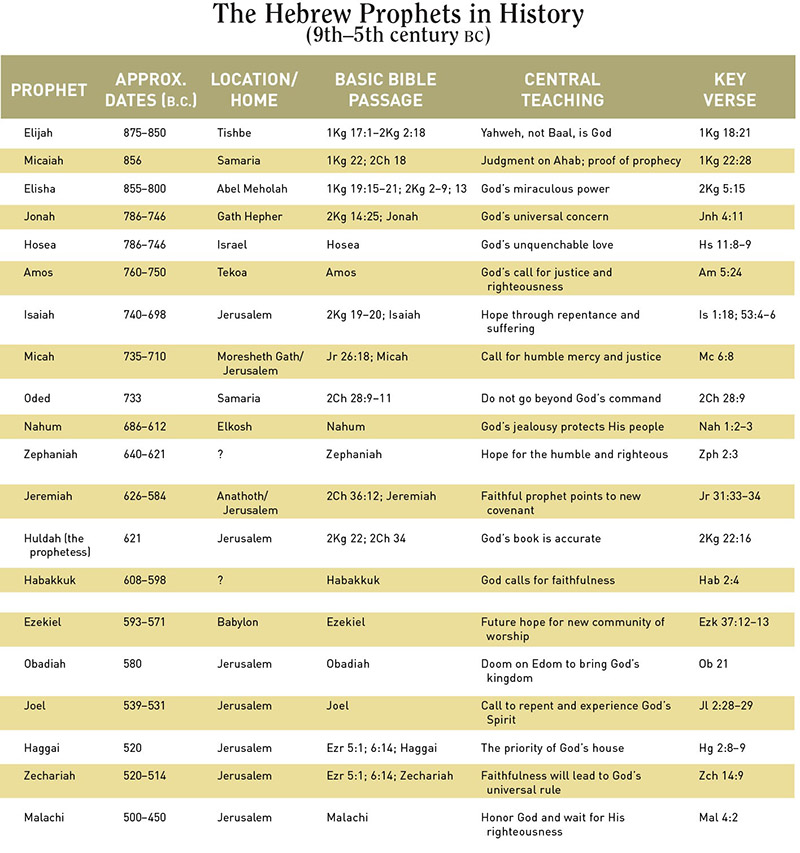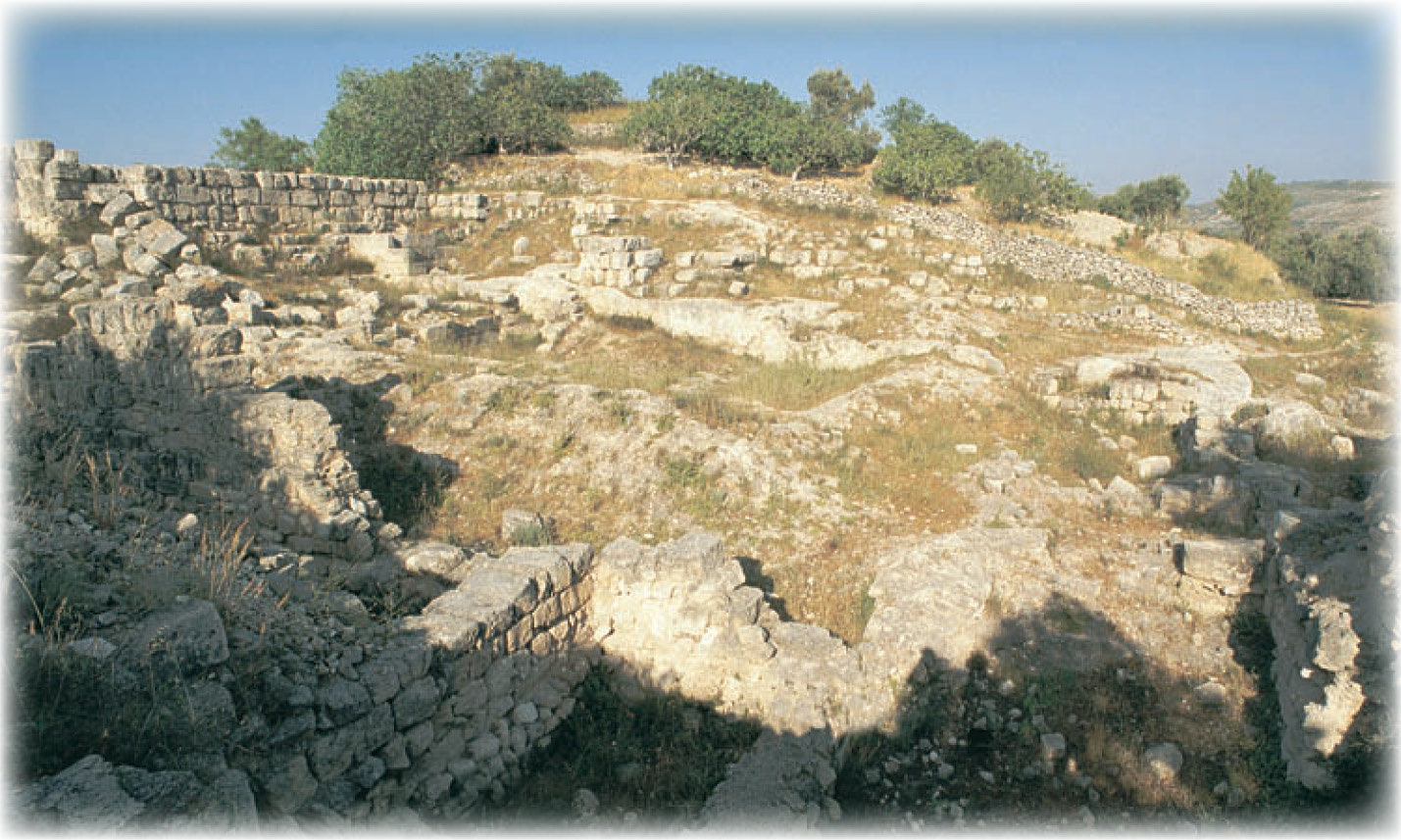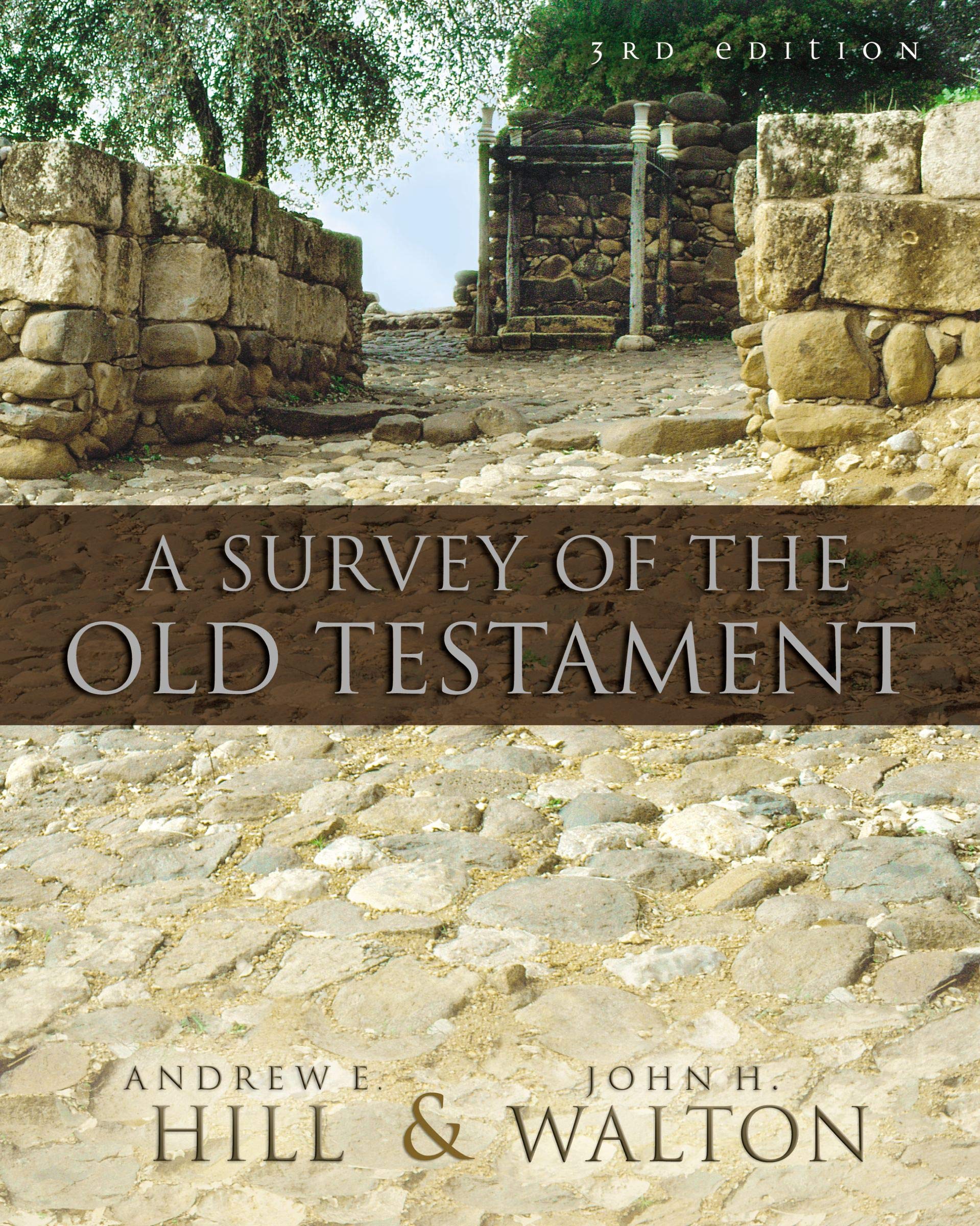Major Prophets (The Old Testament)
The Foundations of the Christian Faith
MAJOR PROPHETS (an exerpt...)
The Major Prophets refers to the books of Isaiah, Jeremiah, Ezekiel, Daniel, and Jeremiah's poetic Lamentations. They are generally designated as "major" because of their length and prominence in the history of God's revelation to Israel and the nations. Isaiah, Jeremiah, and Ezekiel were preaching prophets as well as writing prophets, whereas Daniel was an administrator who received divine revelations from God. He interpreted the dreams of others and recorded his own visions of the future, so it is not surprising that he was recognized as a prophet by Jesus (Matt 24:15).
The Hebrew prophets spoke for God. They wrote the books of history ("Former Prophets") and the books of prophecy ("Latter Prophets") in the Old Testament. The prophetic books of history are followed in the Hebrew Bible by the prophetic books of preaching and prediction. The two categories of prophetic books form a unit in the middle of the Hebrew Scriptures under the common term "prophets" (Hebrew, nebi'im).
THE PROPHETIC OFFICE
The Hebrew term nabi' itself designates the prophet as a spokesman for God. The twofold aspect of the prophet's ministry included declaring God's message for people of their day and foretelling God's actions in the future. Thus, the prophet was also called a "seer" (Hebrew, ro'eh) because he could see future events before they happened. [...]
The Bible depicts the prophet as one who was admitted into the divine council chambers where God "reveals His secret" (Amos 3:7 NASB). The Hebrew text of 1 Sam 9:15 pictures God "uncovering the ear" of the prophet (see KJV). [...]
The full picture of prophecy, then, is that it encompasses both a forthtelling of God's messages and a foretelling of God's actions. [...]

THE PROPHETIC MINISTRY
The Hebrew term nabi' identifies the prophet as a preacher or proclaimer of God's word, as does the Greek term prophetes. Biblical prophets were both preachers of truth and predictors of the future. Prophecy has its roots in history, but it also extends into the future. In other words, the nature of predictive prophecy arises out of the prophet's historical context as the revelation of God points him toward the future as well as the present. Thus, the prophets speak both to their own generation and to future generations as preachers and predictors.[...]
PROPHETIC PREDICTIONS
One of the most unique features of the true Old Testament prophets was their ability to predict future events with perfect accuracy. God Himself predicted Israel's bondage in Egypt and subsequent deliverance (Gen 15:13–18).
Moses predicted the Israelites' successful conquest of the Promised Land under Joshua (Deut 31:23).
Samuel predicted the failure of Saul's dynasty (1 Sam 15:28).
Nathan predicted the consequences of David's sin and its effects on his own family (2 Sam 12:7–12).
Elijah predicted the deaths of Ahab and Jezebel (1 Kgs 21:19–23).
Isaiah predicted the deliverance of Jerusalem from the Assyrian invasion of Sennacherib (2 Kgs 19:34–37).
Jeremiah predicted the Jew's 70-year captivity in Babylon.
The biblical prophets speak to future events as though they had already occurred. [...]
PROPHETIC PATTERN
The prophets were essentially preachers who declared the message of God to their own generation. But their messages also influenced future generations. Hill and Walton observe that the message of the prophets is found in the proclamation of God's word to their contemporary audience, whereas its fulfillment often came later in the unfolding of history they foresaw. 1 In analyzing the pattern of prophetic speech, they suggest four categories of a prophetic oracle:
Indictment - Statement of the Offense
Judgment - Punishment Prescribed
Instruction - Repentant Response
Aftermath - Future Hope
HISTORICAL BACKGROUND
Isaiah dates his ministry from the reign of king Uzziah (c. 740 BC) into the reign of Hezekiah (c. 680 BC), clearly placing himself in the days of the Assyrian threats against Judah. During his lifetime Samaria, the capital of the northern kingdom, fell to the Assyrians in 722 BC. The northern tribes were scattered and replaced by Assyrian settlements in the hills of Galilee and Samaria.
AhabsPalace.jpg

Ahab's palace in Samaria.
[...]
MESSAGE OF THE MAJOR PROPHETS
The English Bible includes five books of the Major Prophets. Among these, Isaiah and Jeremiah are the longest. They emphasize the preaching of these two great prophets of Judah. Ezekiel and Daniel both include apocalyptic visions of Israel's future and provide hope to the Jewish exiles that God is still on the throne.
Isaiah: God Is with Us
Jeremiah: The Babylonians Are Coming
Lamentations: Jerusalem Is Burning
Ezekiel: The Glory Will Return
Daniel: The Messiah Will Come
The messages of the Major Prophets remind us that God holds all nations accountable for their behavior and policies. He alone is the One who sets up and takes down kings (Dan 4:17). He is the sovereign Lord of the universe before whom the nations are but "a drop in a bucket" (Isa 40:15). But He is also the God who gives us hope even in the most difficult times of our lives (Jer 29:11). [...]
For Further Reading
Bullock, C. Hassell. Introduction to the Old Testament Prophets. Chicago: Moody Press, 1986.
Chisholm, Robert B., Jr. Handbook on the Prophets. Grand Rapids: Baker, 2002.
Hindson, Ed. "Prophets," Popular Encyclopedia of Bible Prophecy. Eugene, OR: Harvest House, 2004.
McConville, J. G. Exploring the Old Testament: A Guide to the Prophets. Downers Grove: IVP, 2002.
Smith, Gary V. "Prophet," ISBE. Rev. ed. Grand Rapids: Eerdmans, 1986.
Wood, Leon. The Prophets of Israel. Grand Rapids: Baker, 1979.
Young, Edward J. My Servants the Prophets. Grand Rapids: Eerdmans, 1965.
Endnote (Source)
1. Andrew Hill and John Walton, A Survey of the Old Testament (Grand Rapids: Zondervan, 2009), 509 ff. [Hindson and Yates (2017). (p. 291). The Essence of the Old Testament: A Survey. B&H Publishing Group. Retrieved from https://app.wordsearchbible.com]
